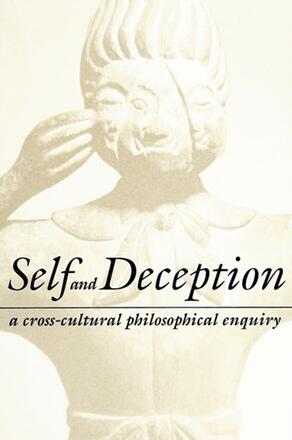
Self and Deception
A Cross-Cultural Philosophical Enquiry
Alternative formats available from:
Distinguished scholars discuss the problem of self-deception, or rather, self and deception.
Description
This volume contains essays by a range of distinguished philosophers on the problem of self-deception, or rather, self and deception. The work proceeds from the assumption that changing constructions of self within Western cultures, and alternative notions of self in other cultures requires that we rethink traditional strategies for explaining the phenomenon of self-deception.
The concept of self is central to any sustained inquiry into self-deception, the pertinent issue being what sort of self is victim (or beneficiary) of self deception. Several of the authors here base their thinking on the model of "other-deception," and include discussion of the notions of double selves, multiple selves, and subsystems of the self, to address this troubling problem. Other authors argue that "other-deception" is not an adequate or reliable model to guide our thinking on this issue.
The psychological and moral dimensions of self-deception generate a rich discussion, as do its epistemic implications. The concept of emotionality also receives sustained attention.
Roger T. Ames is Professor of Philosophy at the University of Hawaii. In addition to co-editing Self as Body in Asian Theory and Practice; Self as Person in Asian Theory and Practice; and Self as Image in Asian Theory and Practice, his major publications include Anticipating China: Thinking Through the Narratives of Chinese and Western Culture (with David L. Hall); Thinking Through Confucius (edited with David L. Hall); Nature in Asian Traditions of Thought: Essays in Environmental Philosophy (edited with J. Baird Callicott), all published by SUNY Press. He is also the co-editor of the SUNY series in Chinese Philosophy and Culture. Wimal Dissanayake is Senior Fellow at the East-West Center in Honolulu, Hawaii. He co-edited, with Thomas P. Kasulis and Roger T. Ames, Self as Body in Asian Theory and Practice; Self as Person in Asian Theory and Practice; and Self as Image in Asian Theory and Practice, all published by SUNY Press.
Reviews
"The book is a provocative trailblazer in that it explores the problematic issues of 'self' and 'deception,' and particularly, 'self-deception,' not only from an epistemological perspective but also from cross-cultural dimensions. While the approach is primarily philosophic, the work is pregnant with implications for cognitive science, cultural anthropology, sociology of knowledge, decision-making theory, and even theoretical biology." — Leo Chang, Regis College